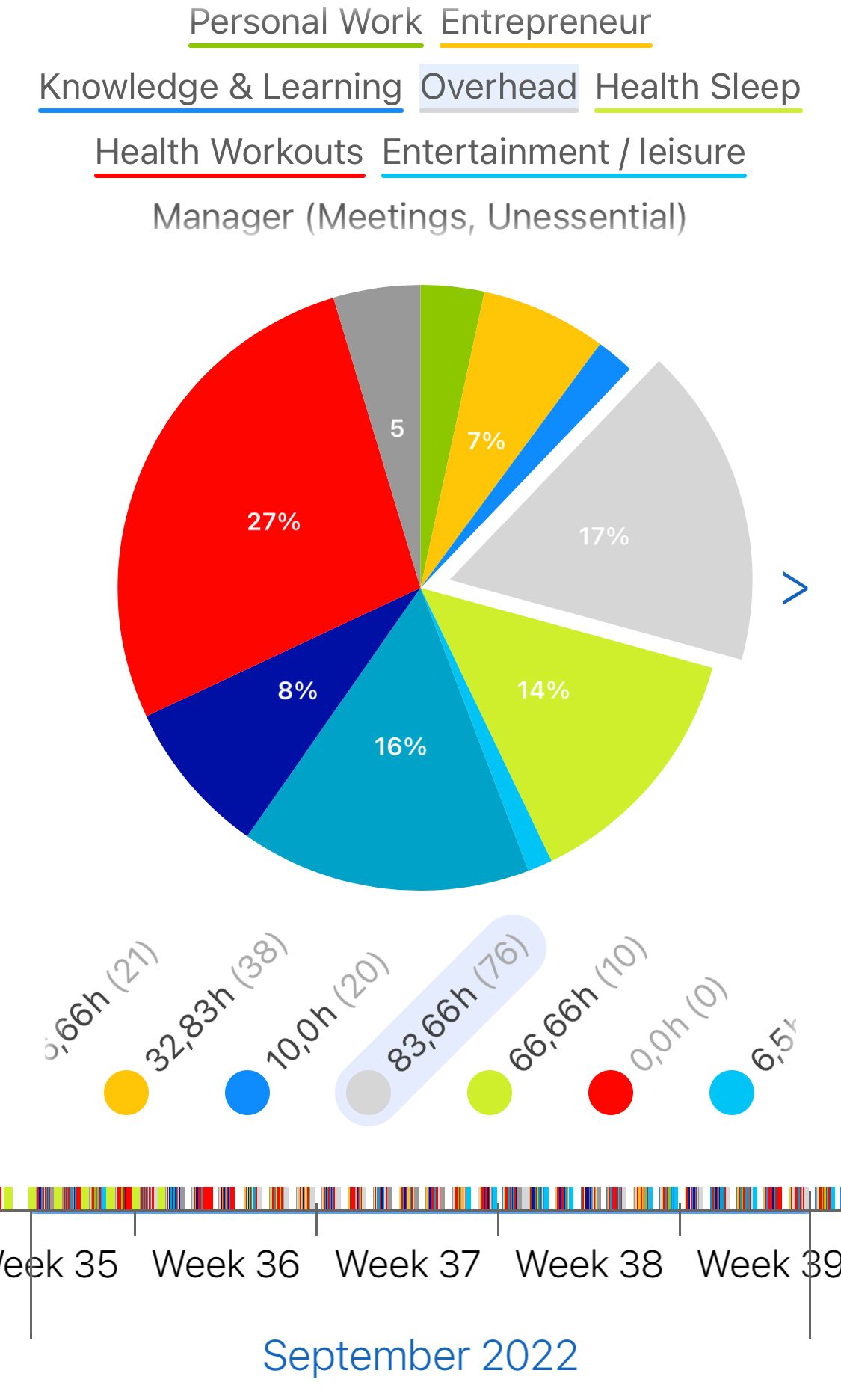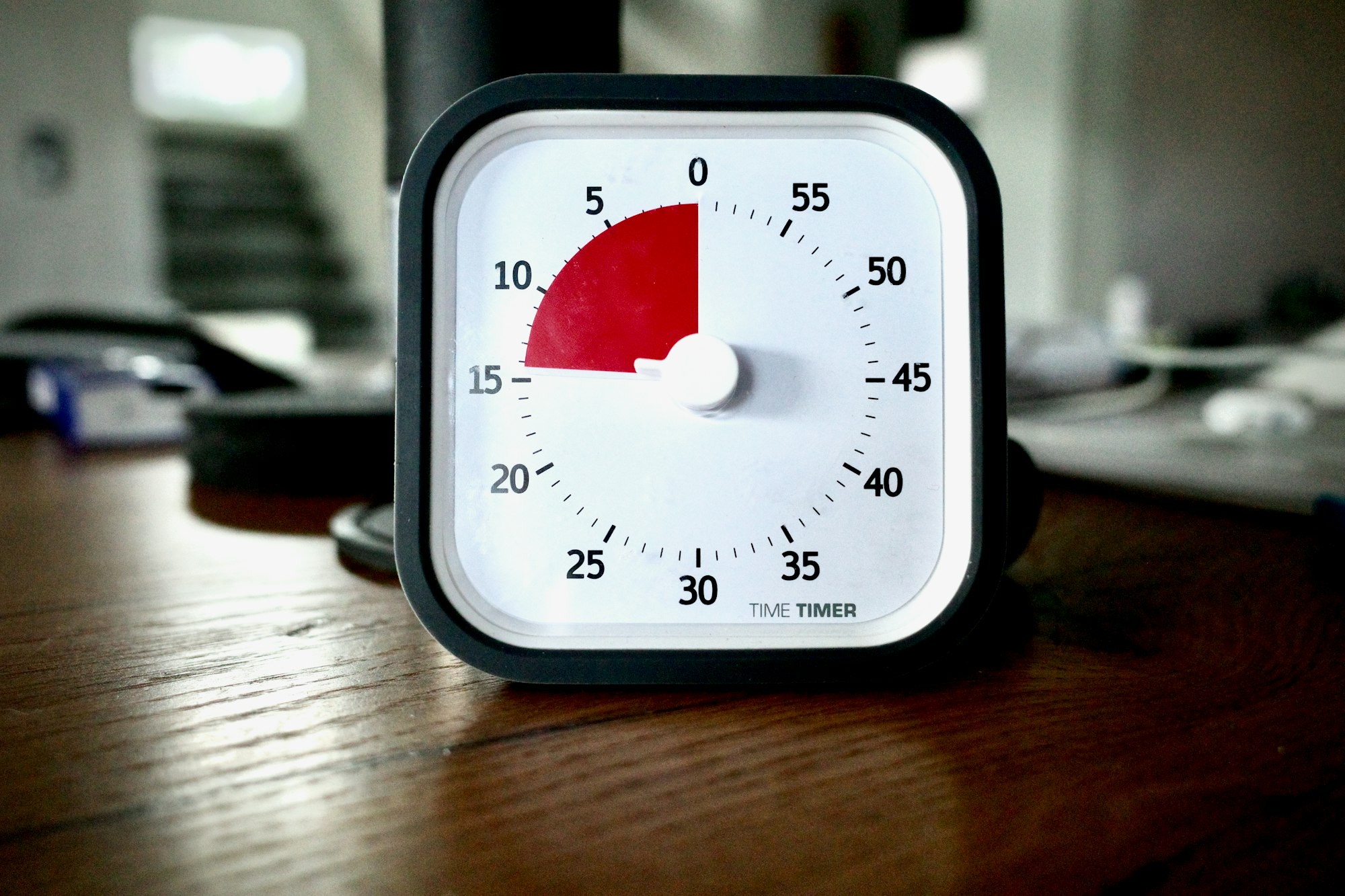Defend your time, and don't let anyone steal your attention

If you want to utilize your lifetime to pursue your goals instead of those of others, you need to become a master of your agenda and defend your time against distractions.
It's no secret that we live in a world where everyone is contesting for our attention. From notifications on our phones to the never-ending stream of news and social media, it can feel like we're constantly under assault from distractions.
And while it's important to stay informed and connected, it's just as important to know when to disconnect and focus on what's important to us. After all, our time is the most precious commodity we have, and we need to be careful about how we use it.
But it's not just about notifications. Distractions that keep you off your path come in many forms.
Identify Sources of Distractions
There are typically two sources of distraction that you need to be guarded against. External distractions have enormous quantities and are comparably easy to fade out. Internal distractions are less common but much more challenging to eliminate. Here are examples of each:

External distractions:
- News and notifications. Something always happens. Whether it's in the world news, the apps you have installed on your smartphone, or the communities you're involved in. Every time you "briefly" deal with a notification, you lose mental energy and get pulled out of your flow.
- Marketing and selling. Your attention is worth the money. If you don't monetize your attention for yourself, the marketing and sales specialists will gladly take it instead. Attempts to steal your attention to convince you to buy a brand or make a purchase are ubiquitous. Attempts are made to awaken needs in you on all channels. When reading, when surfing online, and visiting the shopping centre. On the radio and TV. On posters. Nowhere are you safe.
- Social relationships. There are two distinctions to separate here. Some people want your attention because they love or respect you. This is good and should at least be appreciated. But some people can't handle themselves alone and wish to relieve their boredom by being social and constantly on the road. Here you need to look carefully at how much of your attention you want to invest in socialising and defend yourself from being drawn deeper into this than you want.
- Task delegations. Many people are not like you. They are lazy and look for every opportunity to eliminate their tasks and impose them on you. That's okay with the boss - that's what you're paid for. But with work colleagues or your social environment, you have to be highly selective and only take on the tasks that fit your agenda. If you're not careful, it can quickly happen that you look back at the last six weeks and realize that 90% of the time, you've only been working on someone else's agenda instead of your own.

Inner distractions
- Emotional stress. Emotional stress is one of the worst distractions you can experience. Heartbreak, anxiety, or hatred will cause you to be unable to focus on anything meaningful. There are two things to do here: first, understand how to get into situations of emotional stress and put yourself in a strategic position where they are less likely to occur (e.g. having a stable marriage instead of a mingled lifestyle). And on the other hand, work out the emotional stress in a focused way before moving on to your agenda again. Do not try to be productive while in a state of emotional stress. That won't work.
- Too many ideas. Especially among the most creative among us, many ideas on what you could do bubble up. There is always a new "shiny object" that could be pursued. Inner creativity is essential but can also be distracting. Often it is enough to write down the thoughts and save them for a later moment so that your mind lets you focus again.
- Locked attention. There are situations where your attention is so riveted on something that you can hardly get out of it. You are in the flow. If you're in flow with something that fits your agenda, that's great. But many people get caught up in random and non-productive activities (binge-watching, compulsions, etc.). These are not conducive and also hard to avoid.
- Depleted willpower. Our brain is constantly separating essential from non-essential information. In almost every moment, you have to decide what is vital and to do and what is unimportant and to omit. This goes on all day until you fall into bed exhausted in the evening. The less mental energy you have left, the more likely it is that internal and external distractions will throw you off course. There are only a few things that can help: to isolate yourself from external impulses as much as possible and, simultaneously, make sure that you start the day with maximum energy. That is, you need to get enough high-quality sleep and have a healthy lifestyle.

Recognize the Benefits of defending your time
As I wrote above, your time and attention are precious. The most precious thing you have. If you do not use your attention for yourself, others will use it for their purposes. So the benefit of using your time for yourself is simply that it is the only way to achieve your goals and fulfil your deepest desires.
These are five of the most essential benefits of defending your time and becoming a master of your agenda:
- You'll be able to get more done in less time, as you'll be less distracted and better able to focus on the task at hand.
- You'll be less stressed and more relaxed, as you won't constantly try to juggle multiple tasks and deadlines.
- You'll be able to enjoy your free time better, as you won't feel like you're always behind on your to-do list.
- You'll be able to build stronger relationships, as you'll have more time to devote to quality interactions.
- You'll be able to live a more fulfilling life, as you'll be able to focus on your passions and pursuits.
In addition, your environment will perceive you as determined, purposeful and balanced, which is one of the most critical characteristics of charismatic people.

Evaluate your time spending
Before we talk about the defence measures against time thieves, you must first realize the seriousness of the situation. You have to measure what matters. I actively tracked my time investments for a few weeks just two months ago.
And I was shocked to find out through this data-based tracking that I was only working on my goals for an hour a day at best - sometimes not at all. Everything else was my procrastination and working on other people's agendas.
Here's how to find out for yourself:
Step 1: Install a time-tracking app on your device
I use the app "Timelines" on my iPhone, which is the best choice. I guess for Android, you can find similar apps.

It's not easy to be aware of how you use your time. The Timelines app helps you by reminding you to track your time at specific intervals. It also reminds you if you forget to end a timer. This way, you can get good data relatively quickly.

Of course, it takes some time, but you should try it out for at least 4-6 weeks and see your situation.
Step 2: Interpret the data on your time spending
What I also like to do is to have an additional table calculate a productivity score (column AO in the image) which is a ratio of the time I spend pursuing my agenda (Personal Progress, Essential Manager work, Entrepreneurship, Learning, etc.) and time I classify as non-essential (Meetings, Overhead, Social Media).

The result is a percentage where >100% would mean that I spend at least double the time productively on my agenda than on unessential stuff.
Looking at my example week in the image above (column AO), you'll see that only three of the seven days were successful in that sense (coloured green).

Step 3: Define a goal
After observing my natural time spent for a couple of weeks, I set myself the following time goals, which I have been consistently pursuing ever since:
- A daily social media time limit of 30 minutes.
- At least 1,5 hours on my most essential work issues ("Eat the Frog"), usually right in the morning.
- At least 0,5hrs of knowledge reading. If I didn't set that as my goal, I would only read science fiction.
- Avoid having more than 4 hrs of meetings each day. I'm not entirely in control of that since my job is collaborative. It often gets out of hand again.
I chose these time goals because they are realistic and achievable. Changing your time allocation is more complicated than it sounds. I recommend starting with small steps and with manageable goals.

Implement time defence measures and reap the benefits
So how can we defend our time and ensure we're using it in a way that aligns with our goals and values? Here are a few tips:
- Have an Agenda. Of course, the first thing you need to do is have an idea of how you plan to spend your time in the first place. A whole book could be written on this alone. At this point, however, we can leave it at that that you should be clear about what your annual goals are and how you want to achieve these goals. For example, if you want to lose 10kg weight (Lagging KPI), one way to do this would be to exercise for an hour every day (Leading KPI). Et voila, there you have your first daily agenda item for your agenda.
- Think in timeboxes. Your agenda cannot only consist of abstract goals and projects. You need to break them down into something concrete and actionable. A simple way to do this is to think in terms of timeboxes. Say you want to generate some passive income through a side gig. Then you could aim to make $200 every month (lagging KPI). The leading KPI in the form of a timebox would be to deal with your entrepreneurship for 45 minutes daily. Investing a certain amount of time daily in your goal can be directly influenced by you. However, whether or not some sales will come back at some point is not entirely in your hands.
- Set boundaries. One of the best ways to defend our time is to set boundaries around how we use it. This might mean setting specific times for checking email or social media or setting aside time each day for uninterrupted work or creative pursuits. Whatever it looks like for you, setting boundaries will help you to use your time more effectively and prevent you from getting pulled into the vortex of distractions. I recommend using a visual timer to keep within your boundaries.
- Be intentional. Another way to defend your time is to be intentional about how you use it. This means being mindful of what you're doing and why you're doing it. For example, if you're spending an hour scrolling through social media, ask yourself why you're doing it. Is it because you're bored? Is it because you're procrastinating? Or is it because you're genuinely interested in what's being shared? If it's the latter, then great! But if it's the for, then you might want to reconsider your use using your time. You could record your intent in a daily diary and use it to review the success later.
- Say no. One of the hardest things to do is say no to people, especially when asking for our time. But it's important to remember that we can't do everything, and we must be selective about how we use our time. So if someone asks you to do something that you don't want to do or doesn't align with your goals, don't be afraid to say no. It's not rude; just setting a boundary.
- Be aware of deadlines. One of the best ways to use our time effectively is to have a plan. This doesn't mean that we need to stick rigidly to a program, but it does mean that we need to be intentional about how we use our time. For example, if you know you have a big project due at the end of the week, you might want to schedule time each day to work on it so that you're not scrambling at the last minute.
- Prioritize your time. Another way to be more intentional about how you use your time is to prioritize it. This means knowing what's important to you and ensuring you spend your time accordingly. For example, if your health is a priority, you might want to exercise or prepare healthy meals daily. Or, if your relationships are a priority, you might want to make sure you spend time connecting with loved ones each day. By taking the time to prioritize our time, we can make sure we're using it in a way that aligns with our values and goals.
- You come first. As the day goes on, your willpower declines. There is not much left to work seriously on your projects in the evening. Unfortunately, in a regular 9-5 job, your prime time usually flows into other people's agendas, not your own goals. The solution lies in changing your mornings and maybe even waking up a little earlier. That means you have to go to bed earlier and give up unnecessary entertainment, for example. You then invest an hour or so for your core concern immediately after getting up. That's how I do it with this blog. It's created right in the first hours of the morning before my job starts.
- Create solitude. When you get into the flow, the agenda takes care of itself. Unfortunately, you can't trigger your flow at the push of a button. You have to prepare for it, and you must be physically and mentally alone. Unfortunately, in most cases, it is not an option to retreat to a lonely cabin in the woods. But a little technology can help: Good ANC ("Active Noice Cancellation") headphones, for example, block out all ambient noise. Close your study if you can. Look at a wall. This is often enough to be able to concentrate.
- Be offline by default. This is a complementary measure to create solitude. A writer would only take a typewriter to a cabin in the woods. You certainly can't do that if you're a typical knowledge worker. So at least try to deactivate all notifications (sounds and visual banners) or put your devices in airplane mode. Through digital minimalism, you can protect yourself from attention thieves that want to pull you out of the flow.
- Discard everything unessential from your daily schedule. The more net time you have each day, the more you can spend on your projects besides work. It is, therefore, important to rigorously discard all "overhead times" that do not stand up to your critical review. Social media, endless news consumption, and entertainment on Netflix can be discarded without any disadvantages. On a poorly scheduled morning, you also lose a lot of time without being able to say precisely what you spent it on. Advanced users eliminate even small activities like choosing clothes every day. They wear the same clothes every day.
So those are a few tips for defending your time. Remember, your time is precious, so use it wisely!

Wrapup
In closing, I can only reiterate how important it is that you become the master of your agenda if you want to be successful in life. Do you sometimes look at successful people who show incredible output and productivity? These people are just like you and me and have the same limitations. The only difference is that they spend their time rigorously on themselves.
I heard a quote about this on Tiktok, which fits quite well:
Use the weekend to build the life you want, not to escape the life you have.
Feel free to add your thoughts to this page's comment section, Twitter or LinkedIn!
Best regards,
-- Martin from Deliberate-Diligence.com


Discussion